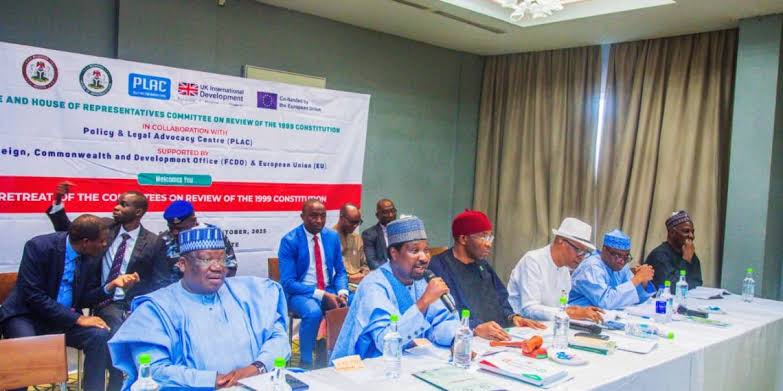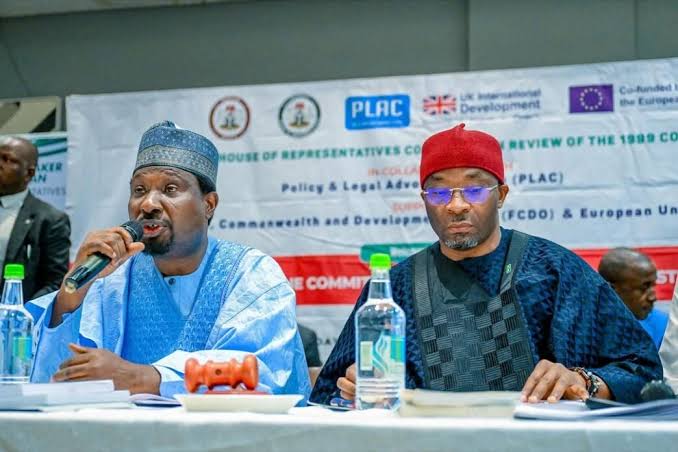The National Assembly Approves the Creation of Six new States

The National Assembly Joint Committee on Constitution Review, at the end of a 2-day retreat in Lagos, has approved the creation of 6 new states with one in each geopolitical zone as part of its resolution in the ongoing review of the nation’s constitution.
This decision, If ratified and implemented will raise Nigeria's total number of states from 36 to 42 — with the North-west having eight, and the North-east, North-central, South-west, and South-south having seven each, and the South-east six.
According to reports from multiple verifiable sources, this move seeks to address regional imbalance and promote equity particularly in the South East.
BACKGROUND AND CONTEXT
The demand for the creation of new states is definitely not a new conversation in Nigeria — it has been one topic that keeps coming up since Nigeria's Independence in 1960. Historically, state creation has been a political and administrative tool used by the government in power to promote inclusivity, decentralize governance, and balance regional interests.
From the first republic's initial 3 regions, Nigeria has evolved through multiple restructuring phases, with the last of them being the state creation exercise executed by General Sanni Abacha in 1996, which brought the total number of states from 30 to 36.
The years that followed, however, have been plagued by different kinds of agitations — often fueled by the perception of marginalisation, uneven development, and inequitable political representation. Among these agitators, the South East has been most vocal — arguing that it's 5 state structure puts it at a disadvantage compared to others in terms of federal appointments, Legislative representation, and resource allocation.
THE RETREAT
During the two-day retreat in Lagos chaired by Deputy Senate President Barau Jibrin and co-chaired by the Deputy Speaker of the House of Representatives, Benjamin Kalu, the committee reviewed 55 proposals for new states, two boundary adjustment requests, and 278 requests for the creation of additional local government areas from various interest groups across the country.

To ensure fairness, the retreat's leadership invited input from lawmakers deeply connected to agitations in their regions. Deputy Speaker Benjamin Kalu, who has been one of the most vocal advocates for a sixth state in the South East, said principles of equity, justice, and fairness drove the approval.
In his words, “This decision is not about politics or sentiment. It is about fairness to a region that has, for too long, been short-changed in the federation’s structure,”
After long debates and cross-zonal negotiation, the committee arrived at what became the ultimatum: one new state per geopolitical zone, regardless of the number of demands from that zone. This balanced approach aimed to prevent an over concentration of states in politically influential zones, while giving all regions an equitable claim to growth and representation.
In support of this compromise, the committee also established a subcommittee, chaired by Senator Tahir Monguno, to evaluate and select which specific areas will become the new states and to harmonize overlapping proposals.
CONSTITUTIONAL REQUIREMENTS
While the approval by the Joint Committee marks a significant step, it is only the beginning a long constitutional process.
Section 8 of the 1999 Constitution of the Federal Republic of Nigeria (as amended) outlines the procedures and requirements for the creation of new states.
According to Section 8, Subsection 1, an act of the National Assembly for the purpose of creating a new state shall only be passed if -
a) A request, supported by at least two-thirds majority of members (representing the area demanding the creation of the new state) in each of the following, namely
i) the Senate and House of Representatives
ii) the House of Assembly in respect of that area, and
iii) the local government of the area, is received by the National Assembly;
b) a proposal for the creation of the states is thereafter approved in a referendum by at least two-thirds majority of the people of the area where the demand for creation of state originated.
c) the result of the referendum is then approved by a simple majority of all the States of the Federation supported by a simple majority of members of the Houses of Assembly; and
(d) the proposal is approved by a resolution passed by two-thirds majority of members of each House of the National Assembly.
Once these steps are completed, the resolutions are transmitted to the President for final assent, as provided under Section 58 of the 1999 Constitution, which stipulates that a bill becomes law after presidential approval. This step, therefore, marks the formal completion of the constitutional process for state creation in Nigeria.
POSSIBLE CHALLENGES
While the proposal for six new states represents a bold move towards equity and inclusivity, it faces various challenges — from constitutional to political to financial.
Since the beginning of the fourth republic, the 1999 constitution has been criticized on many grounds with the most recurring and recent one being that it's grossly outdated to suit the nation’s technological, social, and political evolution. Although the National Assembly has amended the document five times, many proposed changes have been rejected by state legislatures. This stands as one of the possible challenges of the state creation idea as it has proven difficult to secure broad consensus across diverse political interests.
Politically, the introduction of new states is expected to generate fresh political contestation among governors and influential political figures seeking to have the new states located within their regions.
For instance, in the South-west, a bill proposing the creation of Ibadan State has passed second reading in the House of Representatives, while another seeking to establish Ijebu State is also under consideration.
Similarly, there is a bill proposing the creation of Anioma State, currently part of Delta State. The bill is sponsored by Ned Nwoko (APC, Delta North). There have been agitations that Anioma should be recognised as the sixth state in the South-east geopolitical zone, given that it is a predominantly Igbo-speaking area, rather than approving any of the other ongoing state creation proposals in the South-east.
These varying political interests will stand to be formidable challenges to the success of new creation.
In conclusion, while the approval of six new states signals progress towards equity and balance, its success is dependent on overcoming the various obstacles standing in it's way
You may also like...
Ndidi's Besiktas Revelation: Why He Chose Turkey Over Man Utd Dreams

Super Eagles midfielder Wilfred Ndidi explained his decision to join Besiktas, citing the club's appealing project, stro...
Tom Hardy Returns! Venom Roars Back to the Big Screen in New Movie!

Two years after its last cinematic outing, Venom is set to return in an animated feature film from Sony Pictures Animati...
Marvel Shakes Up Spider-Verse with Nicolas Cage's Groundbreaking New Series!

Nicolas Cage is set to star as Ben Reilly in the upcoming live-action 'Spider-Noir' series on Prime Video, moving beyond...
Bad Bunny's 'DtMF' Dominates Hot 100 with Chart-Topping Power!

A recent 'Ask Billboard' mailbag delves into Hot 100 chart specifics, featuring Bad Bunny's "DtMF" and Ella Langley's "C...
Shakira Stuns Mexico City with Massive Free Concert Announcement!

Shakira is set to conclude her historic Mexican tour trek with a free concert at Mexico City's iconic Zócalo on March 1,...
Glen Powell Reveals His Unexpected Favorite Christopher Nolan Film

A24's dark comedy "How to Make a Killing" is hitting theaters, starring Glen Powell, Topher Grace, and Jessica Henwick. ...
Wizkid & Pharrell Set New Male Style Standard in Leather and Satin Showdown

Wizkid and Pharrell Williams have sparked widespread speculation with a new, cryptic Instagram post. While the possibili...
Victor Osimhen Unveils 'A Prayer From the Gutter', Inspiring Millions with His Journey

Nigerian football star Victor Osimhen shares his deeply personal journey from the poverty-stricken Olusosun landfill in ...
